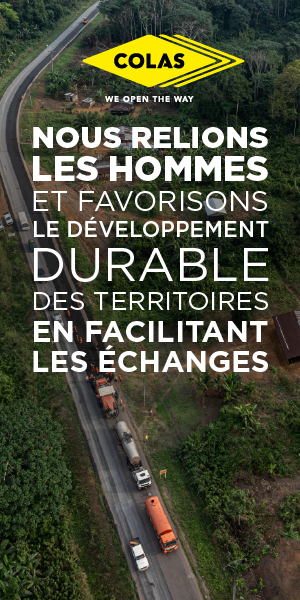Politique Internationale — As a specialist, what is your global view of Africa?
Stephen Smith — Africa, which is seven times bigger than the 28 countries of the European Union together, does not lend itself easily to a global vision. But if I had to choose an approach, I would describe modern Africa as the continent of youth, especially south of the Sahara. More than 40 per cent of the African population are under 15 — in the Sahel and central Africa, they are even half. We find it hard to imagine all the consequences of an age pyramid so different from our own. But, in sum, this means that Africa is the very opposite of that museum of “ancestral traditions” that sometimes stays stuck in our minds like an old cobweb. It is a continent of young pioneers who invent day by day their own ways of life, which in no way resemble those of their elders, those mentors who are now lacking because there are fewer and fewer of them and, also, because they are less and less “with it” in these times of globalisation. Africa is at a turning point, a generational “stress test”. In Europe, Stefan Zweig said his farewells to the “world of yesterday” after seeing the multi-ethnic Austro-Hungarian Empire where he was born disappear, the hatred of the stranger winning in two world wars as some 60 million Europeans left for new worlds. Africa will write its own history, but, for better or for worse, its transformation has all the likelihood of being just as overwhelming.
P. I. — Are you optimistic or pessimistic for this continent?
S. S. — Neither one nor the other because I try to understand and not to prejudge. Afro-pessimism and Afro-optimism cause great wrongs to the continent that they display in turns as a circle of hell or an enchanted land, the “AIDS continent” or “Africa Rising”. There is a reason behind these heads-or-tails versions. Since I have been going to Africa for about 40 years, progress in every field is totally obvious. It is mind-blowing. However, many Africans are not benefiting from this, or not enough, because the number of the potential beneficiaries is rising so much faster that it is impossible to build enough roads, housing, schools or hospitals to meet their needs. These “demographic investments”, as Alfred Sauvy called them, cannot keep up with the growth of a population which has grown from 150 million in the 1930s to 1.3 billion today and which is set almost to double in the 30 years to come to reach 2.5 billion in 2050. So, from infant mortality to Internet access and schooling, the situation continues to improve in relative terms. But, at the same time, the absolute number of those excluded is growing because the total number of inhabitants is soaring. From this stem those short-sighted views of the Africa of the day and the Africa of the night.
P. I. — What are the great changes that you have noticed since you have been going to Africa?
S. S. — I began my studies in an Africa that was polarised by the Cold War. The end of this geopolitical ascendancy was followed by a democratic surge, but also by murderous disasters. In 1994, the election of Nelson Mandela and the genocide in Rwanda seemed to illustrate this crossroads. But today, South Africa is a democracy gutted by corruption and Rwanda is a new dictatorship, but an efficient one. On the political plane, Africa is frozen. The ferment of change bypasses the State when it doesn’t confront it head-on. The great pentecostalist awakening — the Gospel of a prosperity promised to the born again Christians — opened a path to the young and to women to free themselves of the privileges of birthright, of the patriarchate and the gerontocracy. Jihadism is trying to impose through terror a counter-model to the “westernisation” that is considered the road to ruin. China, which was only the 83rd commercial partner for Africa in 1997, has hoisted itself to the top of the podium with the same methods — connivance between élites, unequal exchanges and mutual support on the international stage — that previously served “Françafrique” so well.
Since the Chinese demand for raw materials has flagged, African growth has run out of breath. Africa has not grown out of the income economy. But, even if it is not always a production site, it is now inescapable as a consumer market. A billionaire and, soon, a multibillionaire in demographic terms, it is connected to the rest of the world thanks to the phenomenal breakthrough of mobile phones, which singularly strengthened its extroversion.
P. I. — And what are the greatest clichés?
S. S. — You could fill encyclopedias with clichés about Africa, so much is this continent — the great “heterotopia” of Europe, the name that Michel Foucault gave to a place so alien that it nourishes fantasies — a theme park to seek fear or pleasure… But there is at least one cliché that is shared by Africans and non-Africans. That is that there exists a sort of “Africanity”, a sort of essentialist substratum that unifies what is, in fact, just a geographical area. From Morocco to Mauritius, and from Egypt to South Africa, difference is the rule and resemblance the exception from a point of view that is, at the same time, human, historical and social. So, I would not be able to say what makes an African, except for an inhabitant of the continent of the same name. But the mysticism about Africa persists and, no doubt, will continue to do so. It is even the best-shared African “tradition”.
P. I. — To come back to the economy, do you see signs of take-off?
S. S. — I prefer to talk of an “emergence”, that is slower but huge and irresistible. The emergence in particular of an African middle class — with a revenue of between $5 and $20 a day — which today comprises about 150 million people and, according to the World Bank, will account for four times as many in 2050. These fugitives from poverty have the means to consume, we already said, but also the means to leave for another African country that is more prosperous or outside Africa to try their luck. If they want to migrate to Europe, they need today a treasure chest of between $2,500 and $3,500 depending on where they leave from. This, in many sub-Saharan countries, amounts to the annual per capita GDP and, therefore, is not within the grasp of everyone. But more and more people will be able to get together such a sum and will leave, out of a taste for adventure and to escape an unemployment rate that is expected to reach a pandemic level. Arguing for the contrary, betting on job creation that will meet needs amounts to not being able to count. One example: since 2000, mobile telephones in Africa, the most dynamic economic sector, have created some 3.5 million direct or indirect, formal or informal, jobs overall, from the start-up in a shed to a communications multinational. But it would be necessary now to create more than 20 million jobs a year to accommodate just the first-time workers on the jobs market!
P. I. — Much is said about energy with regards to Africa. How can it be explained that, even in countries that harbour significant resources, national economies do not benefit from this, or benefit so slightly?
S. S. — There is no mystery in this. In the year 2000, Sub-Saharan Africa had 665 million inhabitants of whom one quarter then had access to electricity. Since then, electrification has made enormous progress. Today, still according to World Bank figures, 45 per cent of the population south of the Sahara have access to electricity. But, in the meantime, the number of inhabitants has overtaken a billion. The calculation, then, is easy: some 500 million Sub-Saharans did not have electricity in 2000; 20 years later, there are just as many, if not a little more, despite all the efforts undertaken. In other words, Africa, at best, is treading water because of its dazzling demographic growth. Its population being on course to double by 2050, we can even fear that it might stumble on a faster and faster conveyor belt.
P. I. — Many energy projects are carried out with the cooperation of foreign multinationals, often western groups. Is this support indispensable?
S. S. — Yes, because Africa is in a race against time not to break down, as we have seen, and it does not itself possess the technical knowhow to produce current on a large scale. It is worth recalling that in 2015 all of Africa was producing for its 1.2 billion inhabitants of the time as much electricity as was consumed by just the 20 million inhabitants of greater New York… From that, to supply a continent of 2.5 billion in 2050, gigantic investments will be needed and, in addition, management of these projects without any slips, without any backhanders or overcharging or embezzlement. In other words, in the best case, Africa will avoid being blacked out. But it will surely not have finished with life punctuated by power cuts.
P. I. — Big foreign groups — not just in the energy sector — sometimes get bad reviews in Africa. They are accused of exploiting the continent. What do you think of this?
S. S. — One cannot say anything a priori because the facts need to be examined case by case. But I am not surprised. African governments face discontent, even the anger of their populations who find themselves plunged into darkness, cut off in full flight as they try to cope. But, aside from corruption and bad management, the leaders cannot meet the challenge that they face. So, the temptation to hand the joker over to foreign groups is great. And the temptation for the multinationals to abuse their position of strength must also be great. In Africa, some foreign groups literally have their finger on the light-switch. But this exorbitant power also makes them ideal targets.
P. I. — From where can a solution with regards to mass electrification come?
S. S. — The inertia of demographic trends is such that even a sharp drop in fertility would not bring a solution by 2050. But if family planning policies were finally put into operation, they would improve prospects for the second half of the century. In the meantime, the margin of manoeuvre is narrow without being negligible. For example, Kenya plans to produce 10 per cent of the current that it will need in 2030 thanks to windfarms. Elsewhere on the continent, there is no shortage of hydroelectric or solar energy. It remains to be able to stock it and distribute it in a way to make it accessible to the greatest number. In this respect, the micro-purchases that are permitted by prepayment formulae — along the pay-as-you-go principle as for telephone credit — are much more inclusive than a subscription to the national network, which is often prohibitive. For example, in the solar energy sector, M-KOPA Solar offers in Kenya, or ARED’s in Rwanda and Uganda, allow a lot of customers who would otherwise be excluded to have some hours of lighting, to operate an electrical apparatus or, at least, to recharge their mobile phones. In sum, for energy as for every other product in Africa, it is a matter of seeking out solvent demand.
P. I. — Can Africa allow itself the luxury of environmental concerns?
S. S. — This is not a luxury! On the contrary, it would be a folly not to be concerned. For the moment, the absence of data often hides the extent of the danger to public health in Africa and, beyond that, the harmful effects for the rest of the world. Because Dakar sends to the World Health Organisation (WHO) data relating to the proportion of fine particles suspended in its atmosphere, we know, for example, that the Senegalese capital is more polluted than Mumbai, Beijing and Johannesburg. And the situation is even worse in Onitsha in Nigeria, but we don’t have a complete classification of African cities because only eight countries measure their pollution according to international standards. And yet, it is estimated that air pollution provokes even now the premature death of about 600,000 Africans a year. Acute respiratory infections are the main cause of mortality for new-borns, accounting for 14 per cent of deaths in the first month, ahead of infections linked to delivery (11 per cent) or malaria (10 per cent). According to estimates that are impossible to check in the current state of awareness, Africa, if it continues to consume as much fossil fuel per inhabitant as now, will produce in 2030 — in 10 years — half of the world’s carbon dioxide emissions.
P. I. — In all areas taken together, are there some good initiatives that you would like to underline?
S. S. — Good initiatives are being taken from one end of the continent to the other. In this sense, there is no energy crisis in Africa… Everywhere on this continent, people find solutions, and not just “band-aid” solutions, by treating the problems of their daily life as just so many challenges to be met. Some of my students give up a lucrative career in America to go home. Other Africans, who have already succeeded, finance, as angel investors, start-ups and put their networks of contacts throughout the world at their disposal. Between 2015 and 2018, the risk capital invested in Africa jumped by more than 60 per cent, rising from $227 million to nearly $1.2 billion. All this is terrific and very encouraging. However, it is important not to make mistakes of scale by losing sight of this basic figure: in the next 30 years, on the poorest continent in the world, where per capita earnings are currently 20 times lower than in Europe, the number of inhabitants is going to grow from 1.3 to 2.5 billion. Yes, it’s true that small streams make great rivers. But the sea will not go back to its bed.
P. I. — Does this implacable logic imposed by the facts not overburden you at times, since you have devoted your professional life to Africa?
S. S. — No because, by definition, what is done, even badly done, can always be redone. On the other hand, if there is too much wishful thinking, we find ourselves incapable of moving. Of course, missed opportunities have their cost. If, at the time of independence, when Africa accounted for 300 million inhabitants, it had taken into proper account its demographic facts, its task would be far less arduous today. Now, that’s that, and Africa will not be lacking in new tomorrows. It can always do things again, do things better and seize new opportunities.
* Journalist, writer and academic. He teaches African studies at Duke University in the United States. His latest work, La Ruée vers l’Europe, was published by Grasset in 2018.



















